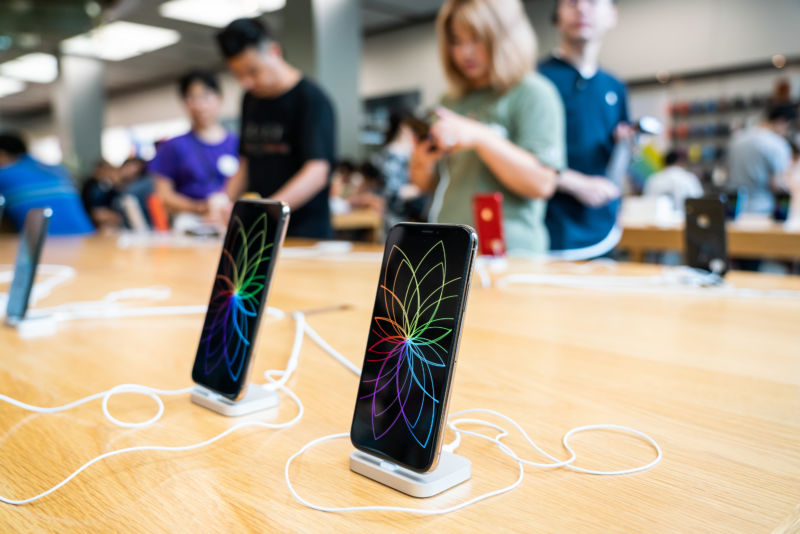
If your new iPhone needs a new battery any time soon, you may not want to bother replacing it yourself or heading to your local third-party shop. Thanks to a change on Apple's part, you'll be basically left with a permanent warning message if you do.
iFixit reports that replacing a battery in the iPhone XR, XS, or XS Max generates a "service" message saying the phone is "unable to verify this iPhone has a genuine Apple battery." The phone will also not display any battery health readings.
The change is due to the chip on the battery itself. In addition to being able to relay information about battery cycles and temperature to the phone, the chips on the newer iPhone models also have an authentication feature for pairing with a specific phone.
The issue persists even if you use a genuine, authorized Apple battery, iFixit says. The only way to make the service message go away? Take the phone to an Apple store or Apple-authorized service center, where they can flip whatever software switch needs to be reset.
“Right to repair”
iFixit calls Apple's latest step to lock you into its ecosystem a "user-hostile choice," but the move is not isolated. Apple has made several previous moves to block third-party or home repairs on iPhones, iFixit notes, from the "error 53" bricking issue that hit owners of repaired iPhone 6 and 6s devices to issues plaguing iPhone 8 and X replacement screens.
Apple is not alone on this front, either. Consumer goods, from phones to tractors, increasingly require direct manufacturer intervention to fix. Whether the issue is a copyright claim on software or a hardware restriction like Apple's, the outcome is the same: product owners spend more money and have fewer options. The "right to repair" movement pushes for legislation and regulation that requires first-party firms to make service manuals, diagnostic tools, and parts available to consumers and repair shops.
The House of Representatives is taking a look at right to repair as part of a larger investigation of competition and antitrust issues in big tech. But for now, right to repair legislation at either the federal or state level has yet to become the norm.
Apple has a track record of opposing right to repair laws, The company frames it as a matter of consumer trust rather than revenue. "We want to make sure our customers always have confidence their products will be repaired safely and correctly, and in a way that supports recycling," the company told Axios this week.
reader comments
287